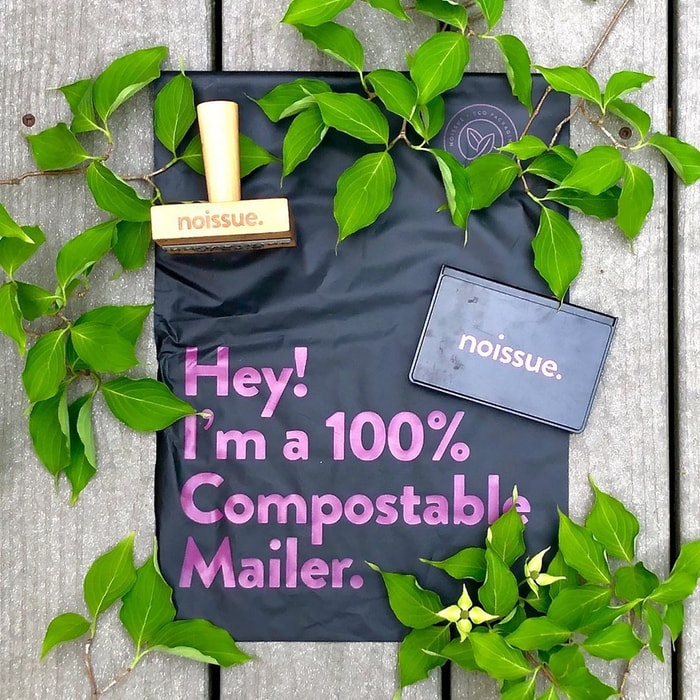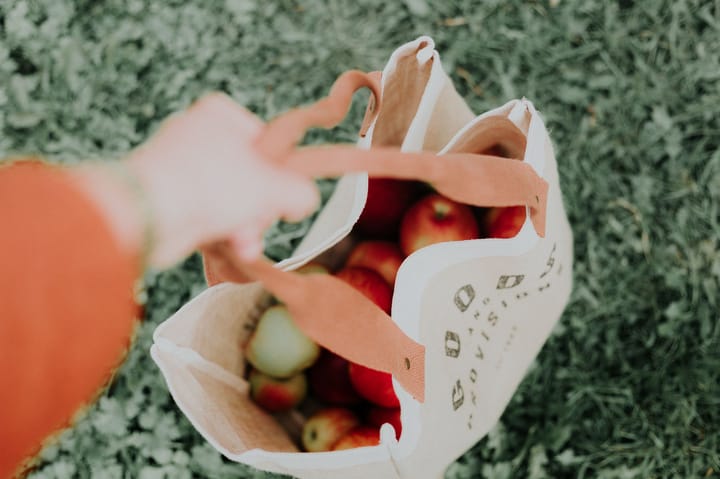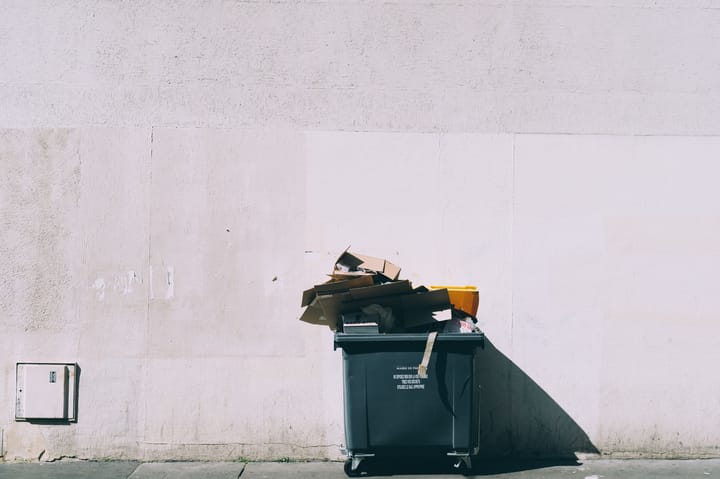
Tips on how to go plastic free this July
Looking for some inspiration on how to go plastic free this July, but not sure where to start? We've pulled together some easy tips and tricks to help you on your sustainability journey.
By Elly Strang — 12 July, 2020
Photo by @alexinnovations
Plastic-free July is a worldwide challenge for people and businesses to reject single-use plastic for a month. This can range from the materials a company uses within its supply chain, right through to individual purchasing choices made as a consumer at home.
Why the problem with plastic? Just 9% of plastic is recycled worldwide, yet we produce about 300 million tonnes of plastic waste annually. About 8 million tonnes of plastic end up in our oceans every year due to wash off from landfill and improper storage.
Wherever you’re at in your sustainability journey, consider this month a fun and pressure-free way to see how changing your behaviour to cut out plastic can have a real, measurable impact on the environment.
In 2019, a whopping 825 million kg of plastic waste was saved thanks to those who made changes to their consumption habits in the month of July. If you get involved, that number could be even higher for 2020!
Below, we’ve gathered some ideas on how you can make changes and take steps towards becoming plastic-free.
Swap out one layer of packaging for a greener option
If there was ever a month to review your packaging and make a switch to a greener alternative, Plastic-free July would be it. Packaging can be one of the biggest contributors to single-use plastic, as over 40% of total plastic use comes from product packaging. But the great news is there are many alternative sustainable packaging materials, from compostable mailer bags to eco-friendly tissue paper.

Start by having a look at how many layers of packaging go into each of your shipments, what material they’re made out of and where those layers end up. If even just one of those layers can be switched to a recyclable, reusable or compostable material, that’s a great first step towards eliminating unnecessary plastic waste.
As an added bonus, championing the difference you’ve made to the environment by choosing to use eco-friendly packaging over plastic materials means your customers will feel good about spending with you – and it might just increase their chances of becoming a repeat customer, too! If you’re thinking of making a switch to sustainable packaging, we'd recommend checking out our packaging range here.
Reward customers who choose sustainable options with a discount
If you’re a retailer that has bricks-and-mortar stores, you’re in a position to incentivise your shoppers to make better choices throughout this month (and the rest of the year!) Many stores are already doing this by eliminating plastic-shopping bags and charging customers a small fee to purchase a cotton or paper shopping bag.

In plastic-free July, you could consider rewarding customers that make sustainable choices. If someone brings in their own shopping bag, could you offer them a reward in the form of free gift wrapping, a voucher, some free samples or a small discount? Another nice touch is to put a customised postcard with their order. The same goes for cafés when someone brings in a reusable coffee cup or lunch box.
By showing your business values and setting an example for customers to align with these values and reap the rewards, you can help others become more conscious of the waste they’re contributing. It also reflects favourably on your business that you’re willing to go the extra mile to affect real change.
Find products that get you excited about going plastic-free
It’s one thing to know that we should all be cutting down on our use of single-use plastic on a personal level, but it’s another to find the motivation to eliminate or cut down it in every aspect of our lives. Single-use plastic is incredibly widespread and used in all sorts of packaging, from shopping bags, to toiletries, to cooking ingredients.
One solution to this is to find products that get you excited about going plastic-free because they’re actually better than the alternatives, be it in design, value for money, product quality, convenience, or user experience.
For example, Terra-Tory creates soaps that are 100 percent natural and free of plastic packaging. Instead, they are packaged in our tissue paper and are very concentrated which means they’re not only sustainable, they're great value for money.

Features like this mean the product is exciting and more appealing than the less eco-friendly alternatives, making you more motivated to make the switch. It also means you’re supporting businesses that make it a priority to reduce their impact on the world.
Create a reusable lunchbox or shopping bag library for staff
One of the easiest ways for plastic waste to accumulate during the workday is staff popping out to buy lunch or doing a shop for other items. Takeaway food and drink containers and plastic bags and other wrapping from retail stores don’t seem that impactful on their own, but they can pile up quickly. They also won’t be picked up by any audits of incoming plastic to your business, seeing as they’re external items being brought in by staff.

A solution to this is to have a library of items people can borrow to take to the shops to make their lives easier (and avoid single-use plastic). Convenience is key, so a collection of cloth shopping bags and reusable lunch boxes can encourage staff to make more conscious decisions about the waste they’re creating through their shopping choices.
Studies show it takes anywhere from 18 to 254 days for someone to form a habit, so doing this for one month can make this become the norm for staff in the future. (Note that in some parts of the world, businesses aren't accepting people bringing their own cups and lunchboxes due to Covid-19, so do your research first!)
Check in with your office and supply chain
If you want to get a really accurate read on how much single-use plastic your business is churning through, it pays to get your hands dirty. Consider doing a bin audit and creating an inventory of the disposable plastic items your business is using. That can range from plates, knives and forks, right through to the plastic wrapping and packaging that is part of your supply chain.

Once you’ve had a look at how much of each product you’re using and assessed what could be avoided, you can start a conversation with your suppliers about the alternative options available. Is there a way for both parties to work together to create change? If your supplier knows the demand is there, they might be more motivated to provide environmentally friendly options.
You can always start small with your changes. Pick one thing that you can choose to refuse, and switch it out with a greener alternative (like we mentioned with packaging!) It’s important to take notice of the small details around the office, too. Consider having reusable utensils for eating, like cutlery and plates, and swap out single-use condiment bottles (mayonnaise, tomato sauce, salt and pepper) for large refillable ones.
Spread the word
You might be well on your way in your sustainability journey, or you might be just starting out with some small changes. Either way, we applaud you for it! Wherever you may be in the process, your unique experience and perspective on going plastic-free is valuable as another business or person might find motivation to change from it.
One way to influence people to rethink their own behaviour is to share that experience. Talk about it on your blog, document it on your Instagram stories or write it up on the board behind the cash register in your store.
Talking about making moves to become plastic free can be a game-changer for others who are unsure what to do.
Share what’s worked and what hasn’t, and where you thought you could’ve done better. It shows your customers that you are a brand that’s willing to step forward and be a leader, even if you might make a few fumbles along the way, which is really inspiring for them to see.
So there you have it. We hope that leaves you with a few ideas on how to get involved with plastic-free July! Remember that every change, big or small, will have an impact – all you need to do is get started.